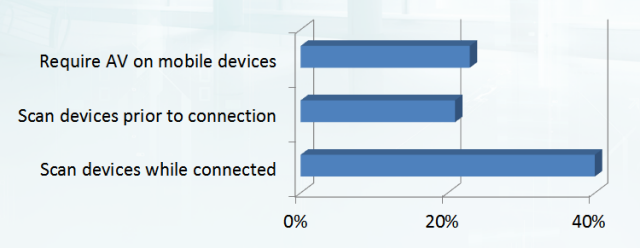A quarter of PCs around the world have no antimalware software, according to Microsoft’s latest Security Intelligence Report. In ‘hotspots’ such as Egypt, that figure is even higher, with 40% of PCs having no antivirus protection.
In America, the figure is 26%, while in the UK, it is 21%. The research was based on data from internet services, and from 600 million PCs worldwide.
The report said that unprotected PCs are, on average, 5.5 times more likely to fall victim to malware. “In the second half of 2012, two and a half out of 10 computers were not protected by up-to-date antivirus software, worldwide. This is a significant number,” said Tim Rains, Director of Trustworthy Computing at Microsoft.
Microsoft suggests that PCs remain unprotected due to a mixture of ignorance, expired trials of antimalware packages, and infections with malware or bogus antivirus software.
“In some cases, a person might decide to pause or disable their antimalware program and simply forget to turn it back on,” says Rains. “By taking the proper measures to protect your computer, including the most basic step of installing up-to-date antivirus software, people can dramatically reduce the risk of becoming a victim to cybercrime.”
Commenting on the Microsoft report, ESET researcher Stephen Cobb says he is not surprised by these findings and stresses that this in not just a consumer PC security issue. "If you look at research from people like Larry Ponemon at the Ponemon Institute, so can see a shocking lack of antimalware scanning in some industries," says Cobb. He points to the Third Annual Patient Privacy & Data Security Study which revealed the following levels of antivirus scanning at a sample of 80 healthcare facilities:
According to Cobb, "You can't legitimately claim that AV is not effective at protecting healthcare data systems if those systems are barely using it." He notes that 9 out of ten of the organizations in the same survey were also found to have suffered at least one data breach in the previous two years.
"It is ironic that today, even as some security professionals are making misguided calls to give up on antimalware scanning because it supposedly doesn't work, Microsoft provides us with yet more evidence that AV is not being used properly," said Cobb.





